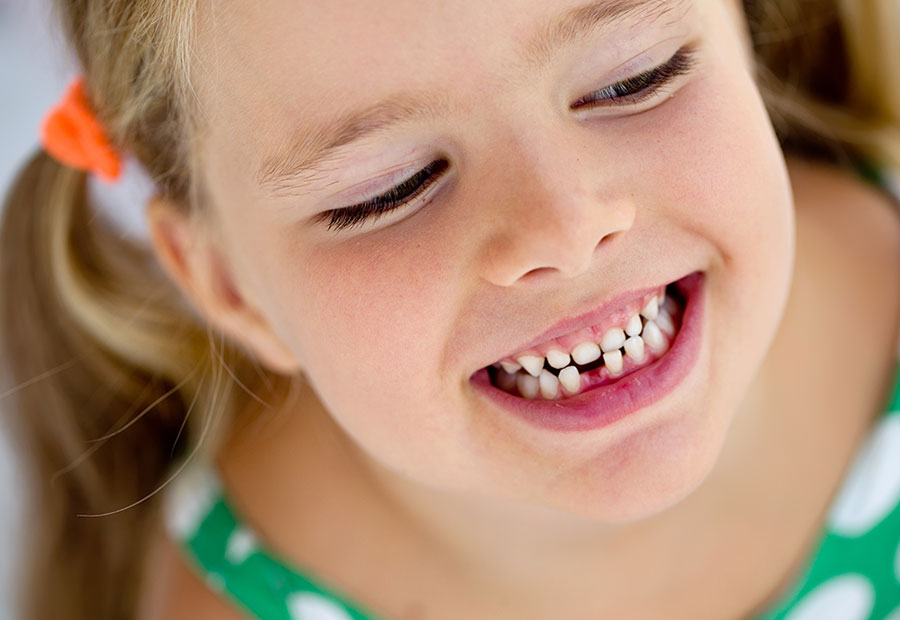Overview
Pediatric dental care is an essential element of a child’s overall health and well-being. Good oral health habits established early can have a positive lasting impact on a child’s dental health and help prevent costly dental problems later in life. In this Markic Dental blog post, we will discuss the importance of pediatric dental care and when children should start going to the dentist.
Why is Pediatric Dental Care Important?
Pediatric dental care must be initiated for all children as it sets good oral health habits in place from an early age. This includes brushing and flossing regularly, eating a healthy diet, and visiting the dentist for routine check-ups.
With good pediatric habits in place, dental problems are unlikely to be a major personal concern. By detecting and addressing any dental issues early on (such as cavities or misaligned teeth), your dental care provider can prevent less serious dental problems from developing into expensive long-term problems.
Additionally, pediatric dental care plays a significant role in helping children feel more comfortable when going to the dentist. By establishing a positive relationship with their dentist early, children are more likely to continue to prioritize their dental health as they grow older.
Adolescents or adults with limited dental office visits can develop fears or unneeded anxiety toward dental work making it easy to put off needed care. Sensitive dental personnel can easily remedy this even when children are quite young.
When Should Children Start Going to the Dentist?
According to the Canadian Dental Association (CDA), children should begin going to the dentist by their first birthday or within six months after their first tooth emerges, whichever comes first. This may seem early, but it is important to establish a dental home for your child as soon as possible for the reasons stated earlier in this post.
During a first pediatric dental visit, your dentist will examine your child’s teeth and gums, as well as check for any signs of existing dental problems. They will also discuss proper oral hygiene practices with you and provide general guidance on diet and nutrition.
After the initial visit, children should continue to see the dentist every six months for routine check-ups and cleanings. Depending on your child’s dental health, more frequent visits may be recommended.
Pediatric Dental Services
Pediatric dental services may include a variety of treatments and procedures to help children maintain good oral health. Here are the most common pediatric dental services:
- Dental cleanings: Regular cleanings help remove plaque and tartar from teeth and prevent cavities from developing.
- Dental sealants: Sealants are a protective coating that is applied to the back teeth to prevent cavities from forming in hard-to-reach areas.
- Fluoride treatments: Fluoride helps strengthen teeth and prevents decay.
- Orthodontics: Orthodontic treatment may be necessary to correct misaligned teeth or unusual bite problems.
- Emergency dental care: In the event of a dental emergency, such as a toothache or injury, pediatric dentists are equipped to provide prompt care and treatment.
Promoting Good Pediatric Dental Care
In addition to regular dental checkups, supporting parents should stay involved in their child’s dental health by promoting good pediatric dental care at home.
Here are some tips:
- Encourage regular brushing and flossing: Help your child brush their teeth in the morning and before bedtime, and floss at day’s end. Use a child-sized toothbrush and a fluoride toothpaste.
- Promote a healthy diet: Try to limit the sugary and acidic foods and drinks which can contribute to tooth decay. Encourage your child to eat a diet rich in fruits, vegetables, and whole grains.
- Make dental care fun: Play music, sing songs, or use fun toothbrushes to make brushing and flossing more enjoyable for your child.
Conclusion
Pediatric dental care is crucial for promoting good oral health and preventing dental problems from taking root. Children should start seeing a dentist by their first birthday or within six months of their first tooth erupting.
Early dental visits can help children become familiar with the dentist’s office and help develop a cheerful outlook towards their dental care. This can make future dental appointments less stressful and more comfortable for both children and parents.
If you have any concerns about your child’s dental health, don’t hesitate to schedule a visit with one of the pediatric care dentists in our office.

